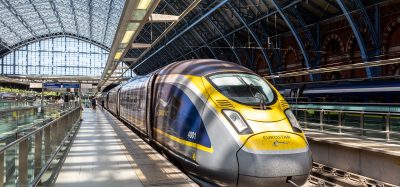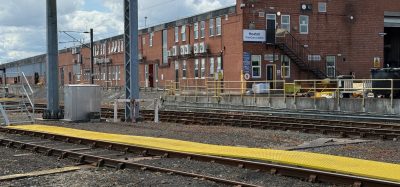The vital need for the rail industry to get it right
Posted: 6 December 2011 | | No comments yet
A recently published figure by the Association of Train Operating Companies provides, I think, one of the best and most revealing snapshots of the railways today. Between 26 June and 17 September 2011, 314.3 million passenger journeys took place on Great Britain’s railways – up 5.3% from the same period in 2010. It is a huge number which highlights not only the importance, and necessity, of train travel to millions of people, but also emphasises how vital it is for the rail industry to get it right, and to meet all of the challenges ahead to ensure future success.
Since joining the Office of Rail Regulation (ORR) as Chief Executive in May 2011, I have frequently spoken about the many challenges, yet great opportunities, ahead for the rail sector. As the rail industry is a long-term business, the decisions taken now, and the aims and objectives set, will affect the capacity and structures of the railways for decades to come. With the demand for train travel rising in a sustained way for the first time in generations, the whole rail industry, together, must make crucial decisions which will inform the direction of travel for the railways now and in the future.
It is vital that the industry demonstrates that it is capable of meeting the challenges ahead to ensure that our railways remain one of the top performing in the world.
A recently published figure by the Association of Train Operating Companies provides, I think, one of the best and most revealing snapshots of the railways today. Between 26 June and 17 September 2011, 314.3 million passenger journeys took place on Great Britain’s railways – up 5.3% from the same period in 2010. It is a huge number which highlights not only the importance, and necessity, of train travel to millions of people, but also emphasises how vital it is for the rail industry to get it right, and to meet all of the challenges ahead to ensure future success. Since joining the Office of Rail Regulation (ORR) as Chief Executive in May 2011, I have frequently spoken about the many challenges, yet great opportunities, ahead for the rail sector. As the rail industry is a long-term business, the decisions taken now, and the aims and objectives set, will affect the capacity and structures of the railways for decades to come. With the demand for train travel rising in a sustained way for the first time in generations, the whole rail industry, together, must make crucial decisions which will inform the direction of travel for the railways now and in the future. It is vital that the industry demonstrates that it is capable of meeting the challenges ahead to ensure that our railways remain one of the top performing in the world.
A recently published figure by the Association of Train Operating Companies provides, I think, one of the best and most revealing snapshots of the railways today. Between 26 June and 17 September 2011, 314.3 million passenger journeys took place on Great Britain’s railways – up 5.3% from the same period in 2010. It is a huge number which highlights not only the importance, and necessity, of train travel to millions of people, but also emphasises how vital it is for the rail industry to get it right, and to meet all of the challenges ahead to ensure future success.
Since joining the Office of Rail Regulation (ORR) as Chief Executive in May 2011, I have frequently spoken about the many challenges, yet great opportunities, ahead for the rail sector. As the rail industry is a long-term business, the decisions taken now, and the aims and objectives set, will affect the capacity and structures of the railways for decades to come. With the demand for train travel rising in a sustained way for the first time in generations, the whole rail industry, together, must make crucial decisions which will inform the direction of travel for the railways now and in the future.
It is vital that the industry demonstrates that it is capable of meeting the challenges ahead to ensure that our railways remain one of the top performing in the world.
The challenges ahead
I had the good fortune to join ORR at an incredibly busy and challenging period, shortly after Sir Roy McNulty’s value for money report was published. Sir Roy’s report has helped pave the way for the future of the rail industry, and his report sets efficiency goals that we must work towards. It is widely agreed that rail users and taxpayers are paying too large a price and that the success of the railways has come at a high cost to both these groups. But, in addition to the big challenge of making the rail industry more efficient – most notably the industry making £1 billion worth of savings annually by 2019, and reducing whole industry costs by 30% by 2018/19 – there are other crucial issues to tackle. These include continuing to push for better rail performance across the nation’s network; working hard to improve the information that passengers receive, and progressing with all of the hard work that goes into making Great Britain’s railways one of the safest in Europe.
We must meet all these challenges, but in order to do so the rail sector must work together. ORR has a unique role to play in helping to achieve these goals. As the independent safety and economic regulator for Great Britain’s railways, ORR sits at the heart of the industry and plays a crucial role in bringing people from across the industry together to discuss and decide the way forward. ORR can help the industry set clear and agreed goals and this has major advantages. I don’t believe in ‘big regulation’ simply for its own sake, but in strong, fair and appropriate regulation, which can help bring all parts of the rail sector together to discuss and agree the aims and objectives for the future. This is vital for success because the hard work needs to take place now to ensure successes in years, and decades, to come.
Improving efficiency
Sir Roy McNulty’s recommendations for a more efficient railway set clearly defined efficiency goals for the industry – ones that must be achieved. The recently published Initial Industry Plan (IIP) – collaborative work by Network Rail, train operators and suppliers – helps progress the work on how the industry must operate to deliver a high performing and value for money railway. The IIP sets out a range of options and choices facing the rail industry and highlights how the rail sector believes it can deliver on efficiency and better value for money, and how the sector can play a key role in driving sustainable economic growth. The IIP is a starting point for discussions between the rail industry, the government and ORR on priorities for the next funding period, which runs from 2014.
ORR has an important role to play in this process. We are currently analysing the IIP and will be making recommendations to Ministers in early 2012. The IIP is also important as it forms a vital part of ORR’s periodic review (PR13) – and helps inform our assessment of what Network Rail must achieve from 2014, the money it needs to do so in light of what the Government wants from the rail sector, and the incentives needed to encourage delivery.
I see the periodic review as a stepping stone to the future as PR13 offers a real opportunity to put the right incentives in place to ensure a better railway for passengers and taxpayers. The plan will inform the development of the Government’s High Level Output Specification (HLOS) and Statement of Funds Available (SoFA), which will be published by summer 2012. As part of this process, it is important that everyone who is interested in the rail sector has a say, and that is why ORR is seeking views on the IIP. I would be delighted to hear your comments.
As the IIP highlights, the necessity of making the railways more efficient needs to be considered across the industry, with many possibilities examined. It is only by considering a wide range of issues that the best way forward can be determined. For example in October 2011, ORR published a consultation seeking views on the potential for more ‘on-rail competition’ – the direct competition between train operators for passengers – to help meet the value for money challenge. We are seeking your views and will consider the best way forward. Greater on-rail competition is one means by which the challenge of making efficiency savings could be addressed. The consultation considers whether more on-rail competition would be desirable, taking account of its potential benefit for passengers, but also explores how to ensure that such competition doesn’t lead to significant additional costs for the taxpayer.
But in looking at the efficiency challenge, and working towards the goals established in Sir Roy’s report, there is still considerable work to be done. A significant part is gaining clarity on where efficiencies need to be made, and are being made. Recent research has shown that Network Rail must be clearer about this. Network Rail has reported that it has achieved efficiencies of 13.2% (£629 million) since 2008/09 but our assessment, backed up by a report by independent analysts Arup, questions the evidence behind some of Network Rail’s claims. We have called on the company to improve its systems and processes for reporting efficiencies, and to provide hard evidence to justify that they are real and sustainable efficiencies. While Network Rail has achieved significant efficiency improvements in recent years, which I welcome, the company must show clearly the actual efficiencies made. Without doing so, it throws doubt on nearly £100 million of Network Rail’s claimed efficiency savings – which is unacceptable.
Looking to the future
The rail industry must build on its successes – and there are many. Great Britain’s railways have an excellent safety record and ORR’s annual health and safety report, published in the summer, highlights all the positive work done to make the network even safer. There has been a significant reduction in potential high risk train accidents on the mainline railway, from 42 in 2009/10 to 18 in 2010/11 – a record low. And we must also look at other positives: Passenger Focus’ National Passenger Survey shows passenger satisfaction at 84%, the highest since records began.
But, it goes without saying that we can never be complacent and must work to make further improvements. For example, train performance and passenger information must improve. Latest performance figures highlight that Network Rail is falling behind key end-ofyear punctuality targets, including long distance passenger services where it is 3.4% adrift of targets. ORR’s particular concern is with the performance of East Coast, First Great Western and First ScotRail. While we recognise that the causes of delay are often complex, particularly where they are driven by factors from outside the railway like cable theft or extreme weather conditions, the impact of delays on passengers’ lives can be huge. Problems with performance are issues that need to be remedied immediately and Network Rail and the train companies have committed to work together through their National Task Force to tackle these issues. ORR has warned Network Rail that it will consider formal action if the company fails to deliver on its end-of-year performance targets.
Additionally, ORR recognises the associated problems that delays cause passengers and that is why we are currently considering responses to a consultation on whether the regulator needs new powers to help drive the delivery of improved passenger information. We strongly back calls for more consistent, accurate and timely information for passengers to plan and make rail journeys, and we will outline the best way forward shortly.
The challenges for the future are clear and the rail industry must deliver improvements so that it can ensure success. I believe that by working together, and showing real leadership and vision for the future, the rail industry can, and will, deliver.
About the Author
Richard Price was appointed chief executive designate of ORR from 16 May 2011 and took up responsibility as Chief Executive on 17 June 2011. The Secretary of State for Transport appointed him to the ORR Board from 16 May 2011 until 15 May 2016. Richard has significant experience of economic regulation through his jobs in government and in the private sector. Richard was previously Chief Economist and Director of Performance at Defra since 2006 where he led a radical change programme, reorganising the depart – ment to meet its future challenges. Richard led the Enterprise team in HM Treasury from 2002-6. This included leading on the Treasury’s relations with business, helping to shape the Hampton Review of regulation, which resulted in the simplification of the regulatory framework for UK business, and negotiating launch investment with the aerospace sector so as to ensure a commercial return for government. While at the Home Office, Richard worked on the reform of the criminal justice system, the economic cost of crime, and the social and economic effect of immigration. He worked as a consultant on reform to economic and environmental regulation in the UK, Eastern Europe and Asia.
Richard has an MSc in Economics from University of York, and is a member of the Royal Economic Society, and a fellow of the Royal Society of Arts. Richard Price is a member of the periodic review and safety regulation committees.








